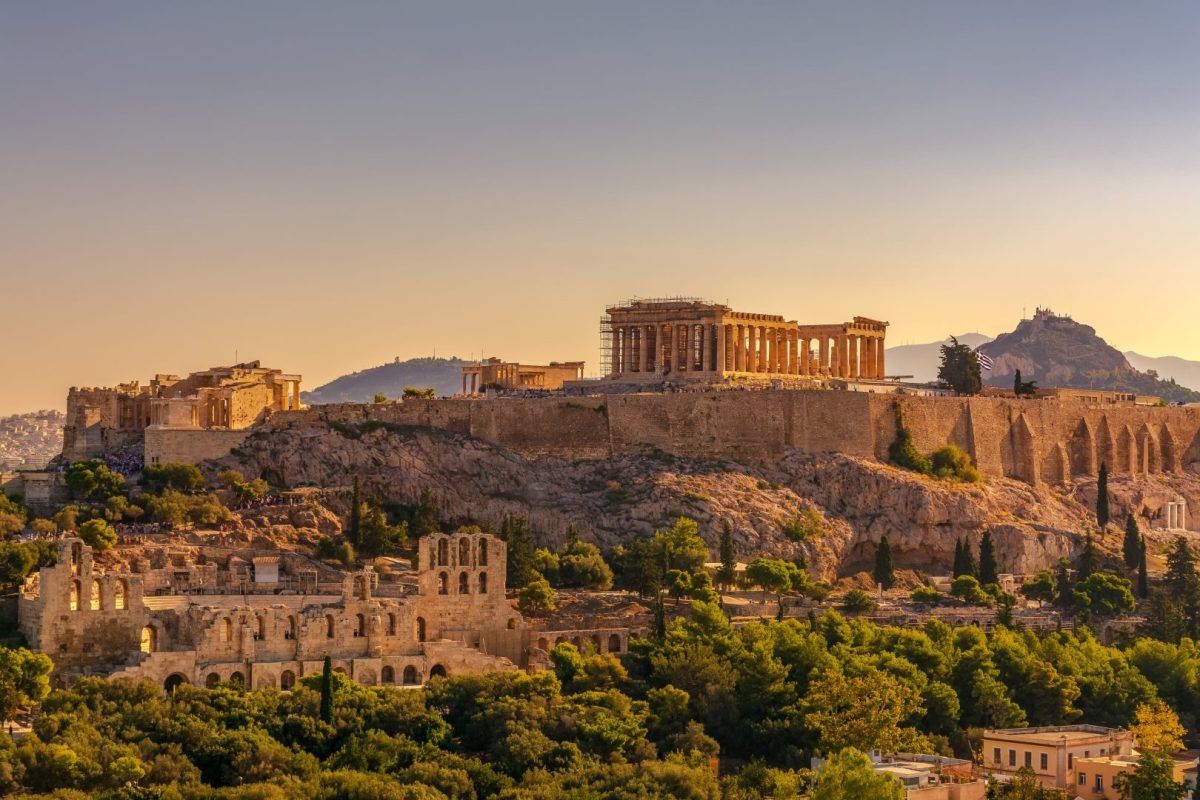How to Plan Your Bus Trip to Mycenae, Epidaurus & Nafplio in Athens
If you are planning a trip to Athens, Greece and looking to explore the ancient marvels of the city, then you should consider taking a bus trip to Mycenae, Epidaurus, and Nafplio. This tour is offered by a third-party company and is perfect for history buffs and curious travelers. This educational and informative tour takes you back to the times of Ancient Greece, allowing you to experience what life was like thousands of years ago. In this post, we will provide you with a detailed guide on how to plan your bus trip to Mycenae, Epidaurus, and Nafplio.Overview
The tour departs from Halandri Metro Station and takes you to explore the ancient city of Mycenae, the ancient theatre of Epidaurus, and the coastal city of Nafplio. You will get to learn about the mysterious origins of the Cyclopean walls and the magnificent Mask of Agamemnon. You can choose from either a shared or private guided experience. The tour is led by an English-speaking guide who is also an archaeologist, making it the perfect opportunity to learn from the experts.Experience
This bus trip is an ideal adventure for those interested in discovering some of the famous ancient Greek monuments. The highlights of this tour include:- Exploring the ancient city of Mycenae
- Learning about the mysterious origins of the Cyclopean walls
- Marveling at the ancient Mask of Agamemnon
- Stepping on the ancient theatre of Epidaurus
- Visiting the coastal city of Nafplio
- Taking photos from the Isthmus of Corinth
- Choosing from either a shared or private guided experience
Itinerary
The tour begins early in the morning and lasts for approximately 10 hours. Here is a detailed itinerary of what to expect:| Time | Activity |
|---|---|
| 7:00 AM – 8:00 AM | Departure from Halandri Metro Station |
| 9:15 AM – 11:15 AM | Exploration of the Ancient City of Mycenae |
| 11:30 AM – 12:30 PM | Stopover at Corinth Canal |
| 1:30 PM – 2:30 PM | Exploration of the Ancient Theatre of Epidaurus |
| 3:00 PM – 4:00 PM | Visit to the Coastal City of Nafplio |
| 7:00 PM – 8:00 PM | Return to Halandri Metro Station |
Tour Inclusions
The tour package includes various inclusions to make your trip as comfortable and affordable as possible. Here is what you can expect:- Round trip transportation from Halandri Metro Station
- English-speaking guide (archaeologist)
- Free Wi-Fi on the bus
- Basic travel insurance
- Free of charge entrance to the archaeological site and museum for youths up to 18 years old and students inside the European Union
- Reduced entrance fee (-50%) for European Union citizens aged over 65 and students of Higher Education Institutes outside the European Union
- Entrance fee to the archaeological site and museum of Mycenae (12€ during summer season and 6€ during winter season)
Booking Information
Booking this tour is easy and straightforward; all you need to do is visit the link below and book your preferred date to join the tour:Final Thoughts
In conclusion, exploring the ancient ruins of Greece is a unique and unforgettable experience, and this bus trip is an excellent way to do so. The tour is informative, affordable, and convenient, giving you a chance to learn more about the Ancient city of Mycenae, the ancient theatre of Epidaurus, and the coastal city of Nafplio. We hope this guide has provided you with valuable insight into how to plan your bus trip to Mycenae, Epidaurus & Nafplio in Athens.
Athens: Everything You Need to Know
Athens, the capital of Greece, is a city that is steeped in history and mythology. The city has been inhabited for over 3000 years and is home to some of the world’s most iconic landmarks, such as the Acropolis and the Parthenon. In this FAQ, we will answer some common questions regarding Athens that travelers often ask.1. What is the best time to visit Athens?
The best time to visit Athens is during the months of April to June or September to November. These months offer pleasant weather, fewer crowds and cheaper accommodation options. However, if you are on a tight budget, the low season of December to March is also a good time to visit Athens.2. What are the must-visit attractions in Athens?
Athens is home to numerous iconic landmarks that are worth visiting. Some of the must-visit attractions include:The Acropolis and the Parthenon
The Acropolis and the Parthenon are the most popular attractions of Athens. The Parthenon is an ancient temple dedicated to the Greek goddess Athena and is considered to be one of the world’s greatest cultural monuments.The Ancient Agora
The Ancient Agora was the center of Athenian public life and home to a number of famous buildings including the Temple of Hephaestus, the Stoa of Attalos, and the Tholos.The National Archaeological Museum
The National Archaeological Museum is the largest archaeological museum in Greece and home to an impressive collection of ancient Greek artifacts.The Plaka District
The Plaka District is one of the oldest neighborhoods in Athens and is known for its labyrinthine streets, boutique shops, cafes, and restaurants.3. How can I get around Athens?
Athens has an extensive public transportation system that includes metro, buses, and trams. The metro is the most convenient way to get around Athens, as it covers most of the city’s major tourist spots.4. What is the currency used in Athens?
The currency used in Athens is the Euro.5. What is the food like in Athens?
Greek cuisine is known for its fresh, flavorful ingredients and Athens is no exception. Some of the must-try dishes in Athens include:Moussaka
Moussaka is a traditional Greek dish made with layers of eggplant, potatoes, minced meat and tomato sauce, topped with béchamel sauce.Spanakopita
Spanakopita is a spinach and feta cheese pie that is a staple dish in Greek cuisine.Souvlaki
Souvlaki is a popular Greek fast food made with grilled meat and served on skewers.6. What is the language spoken in Athens?
The official language of Athens is Greek, but English is widely spoken, especially in tourist areas.7. Is Athens a safe city for tourists?
Athens is a safe city for tourists, however, as with any city, it is important to take precautions such as not carrying large amounts of cash or valuables, staying within well-lit and populated areas at night, and being aware of your surroundings.8. What is the dress code in Athens?
There is no strict dress code in Athens, however, it is recommended to dress modestly, especially when visiting religious sites.9. Is tipping customary in Athens?
Tipping is customary in Athens, with a 10-15% tip being standard for restaurants, cafes, and bars. Tipping for other services such as taxi rides and haircuts is also appreciated.10. Can I drink tap water in Athens?
Tap water in Athens is safe to drink, however, some people may experience stomach upset due to the different mineral content. It is recommended to drink bottled water instead. In conclusion, Athens is a city that is rich in history, culture, and cuisine. With numerous must-visit attractions, a vibrant food scene, and a welcoming atmosphere, it’s no wonder why Athens is one of the most popular tourist destinations in Europe.
How to Spend Your Time as a Tourist in Athens
If you’re planning a trip to Athens, Greece, you’re in for a treat! Athens is a city rich in history and culture, offering visitors a wide range of things to see and do. With so much to explore, it can be difficult to know where to start. In this post, we’ll provide you with a step-by-step guide on how to spend your time as a tourist in Athens.1. Visit the Acropolis
The Acropolis is a must-see attraction for anyone visiting Athens. This ancient citadel sits atop a rocky hill in the center of the city and is home to several important historical monuments, including the Parthenon, the Temple of Athena Nike, and the Erechtheion. Visitors can take a guided tour of the Acropolis or explore on their own. Be sure to wear comfortable walking shoes as there are many stairs to climb. We recommend visiting early in the morning or later in the afternoon to avoid the crowds and heat.2. Explore the Ancient Agora
The Ancient Agora was once the heart of ancient Greek democracy and is now a sprawling archaeological site. Visitors can wander through the numerous ruins, including the Temple of Hephaestus, the Stoa of Attalos, and the Agora Museum. Guided tours are available, but it’s also possible to explore on your own. We suggest bringing plenty of water and sunscreen, as much of the site is exposed to the sun.3. Discover the National Archaeological Museum
The National Archaeological Museum is one of the largest museums in Greece, and its collection spans thousands of years of Greek history. Visitors can see highlights such as the Mask of Agamemnon, the bronze statue of Zeus or Poseidon, and the Antikythera Mechanism. Audio guides are available for a small fee, or visitors can explore on their own. The museum can get busy, so we recommend visiting early in the day.4. Wander Through the Plaka
The Plaka is the oldest neighborhood in Athens and is full of narrow streets, charming cafes, and souvenir shops. Visitors can wander through the lively streets, grab a bite to eat, or indulge in some shopping. We suggest visiting the Plaka in the early evening when the weather is cooler, and the crowds have thinned out. The area can be a bit touristy, but it’s still well worth a visit.5. Take a Day Trip to Cape Sounion
Cape Sounion is located about an hour outside of Athens and is home to the Temple of Poseidon. Visitors can take a day trip to the cape to admire the stunning views of the Aegean Sea and explore the temple and surrounding area. Several tour companies offer day trips to Cape Sounion, or visitors can rent a car and explore on their own. We recommend visiting in the late afternoon to catch the sunset.6. Check out the National Garden
The National Garden is a peaceful oasis in the heart of Athens. Visitors can stroll through the lush greenery, admire the numerous fountains and ponds, and visit the small zoo. Entrance to the garden is free, and it’s a great spot to relax and escape the hustle and bustle of the city. We suggest visiting in the morning or late afternoon when the weather is cooler.Book Your Tour Now
Athens is a fascinating city, full of history and culture. Whether you’re interested in ancient Greek architecture or modern Greek cuisine, there’s something for everyone in Athens. We hope this guide has helped you plan your trip and provided you with some ideas on how to spend your time as a tourist in Athens. Remember to bring plenty of water and sunscreen, wear comfortable shoes, and enjoy your time in this beautiful city!Table of Contents

